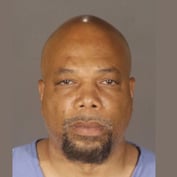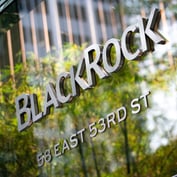(Bloomberg) — After snubbing the 2012 Democratic National Convention, labor leaders are this year pledging a flood of cash and volunteers for the party’s U.S. Senate candidates — and getting plenty in return.
Democratic leaders have shelved a measure to encourage free-trade agreements — which unions hate — and are moving to raise the minimum wage to $10.10 an hour. President Barack Obama is seeking more for labor-backed job training programs in his budget request. And workers are winning key decisions by the Democrat-dominated National Labor Relations Board, after Obama helped clear the way for it to operate again at full strength.
In return, Democrats will need all the help they can get as they seek to preserve a slender, 55-45 majority in the Senate. The November elections include competitive races in Michigan, Alaska, Montana and other states that have workforces with a higher-than-average percentage of union membership.
“Nobody knows how to organize like they do,” said Matt Canter, deputy executive director of the Democratic Senatorial Campaign Committee. “They bring a tremendous amount to the table. The biggest challenge we face this election cycle, because it’s a midterm, is turnout.”
Individual unions also will spend tens of millions of dollars to reach out to non-union voters, activity that was restricted until the Supreme Court’s 2010 Citizens United ruling removed limits on corporate and union independent election spending.
Unions have shown a growing willingness to help the party respond to the record sums being raised by Republican-leaning groups through super-political action committees, which can collect and spend unlimited sums on elections, and other organizations. That includes Crossroads GPS, founded with help from Republican Karl Rove, and Americans for Prosperity, backed by billionaire brothers Charles and David Koch.
Super-PACs and nonprofit organizations spent $840 million in the 2012 elections. Labor unions donated $115.5 million through outside groups, about 14 percent of the total, according to the non-partisan Center for Responsive Politics. So far this cycle, unions have donated $9 million, about 17 percent of the total, the CRP says.
“In recent years, labor has provided the edge that Democrats need to go toe-to-toe with any number of right-wing conservative groups,” said Jim Manley, a former top aide to Senate Majority Leader Harry Reid, a Nevada Democrat.
Not everyone is so sure labor can make a real difference. Bruce Josten, executive vice president of the U.S. Chamber of Commerce, said union-member anger over elements of the Patient Protection and Affordable Care Act (PPACA) is just one issue that might depress that part of the Democratic base.
And their dwindling numbers may also hamper their efforts, he said.
“There’s a lot that can disrupt this,” Josten said. “And they have a diminished capacity to get out the vote among their own people, because they’re in decline.”
And Obama risks angering unions later this year if he rejects TransCanada Corp.’s proposed Keystone XL pipeline, which they favor for its job-creating potential. Environmentalists who back Obama oppose the pipeline from Canada to the U.S. Gulf of Mexico coast.
Unions are preparing to mobilize for Democrats after feuding with the Obama administration for years, with labor leaders angered over a lack of action on core issues including measures to make organizing workplaces easier. Most major unions declined to help fund 2012’s Democratic National Convention in Charlotte, N.C., because it was held in a so-called right-to-work state that prohibits making dues payments a condition of employment in union shops. The host city also lacked unionized hotels for delegates.
Voter turnout
The AFL-CIO’s polling data shows that members of unions are more likely than other voters to turn out in midterm elections in the most contested states. In the 2010 elections, 65 percent of union members affiliated with the labor federation voted in 19 swing states — including Ohio, Pennsylvania and Colorado — versus 53 percent for non-union voters. In 2006, it was 65 percent for union voters versus 55 percent for non-union voters.
Union membership is higher than the national average in several states with the most competitive Senate races. That may help Democrats in a year when the party will defend 21 Senate seats, said Michael Podhorzer, the AFL-CIO’s political director.
In Alaska, where Democratic Senator Mark Begich is fighting to keep his seat, 23.1 percent of workers are union members.
In Republican-leaning Montana, where 13 percent are in a union, Democrats are seeking to keep the Senate seat of Max Baucus, who has resigned to become U.S. ambassador to China.
Podhorzer said a concentration of union workers also could give labor sway in Kentucky, where Democrats seek to defeat the Senate’s minority leader, Mitch McConnell, and Michigan and Iowa, where Democrats Carl Levin and Tom Harkin are retiring.








 March 04, 2014 at 08:38 AM
March 04, 2014 at 08:38 AM










